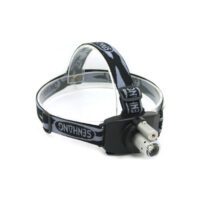What Are The Four Types Of Dizziness?

Experiencing dizziness can be disorienting and sometimes alarming. It’s important to understand the different types of dizziness and their causes to seek the appropriate treatment. This FAQ will explain the four types of dizziness, helping you identify symptoms and understand potential underlying issues.
Why Do People Experience Dizziness?
Dizziness can result from various underlying conditions, each with unique causes and symptoms. It’s essential to recognise these differences for accurate diagnosis and effective treatment.
1.Vertigo
Vertigo involves a spinning sensation or false movement perception even when stationary. It often stems from issues within the vestibular system in the inner ear.
- What is Vertigo?: Explains vertigo, its causes, and treatments.
- Vestibular System Disorders: Discusses disorders affecting the vestibular system and how they lead to vertigo.
2. Dysequilibrium
Dysequilibrium is the feeling of being off balance. It can be caused by brain changes, nerve issues, or musculoskeletal problems.
- Balance Disorders: Learn about various balance disorders and their symptoms.
- Musculoskeletal and Balance: Explains how musculoskeletal issues can affect balance.
3. Presyncope
Presyncope is the sensation of impending fainting, often linked to cardiovascular problems.
- Orthostatic Hypotension: Information on dizziness caused by changes in posture.
- Cardiovascular and Dizziness: Discusses how heart-related issues can lead to dizziness.
4. Lightheadedness
Lightheadedness, or a general feeling of giddiness, is sometimes due to hyperventilation or anxiety disorders.
- Anxiety and Dizziness: Explore how anxiety can cause dizziness.
- Hyperventilation Syndrome: Discusses hyperventilation and its link to lightheadedness.
How Is Dizziness Diagnosed?
Diagnosing dizziness involves a thorough assessment by healthcare professionals to determine the root cause.
Vestibular Physiotherapy
Vestibular physiotherapists can help diagnose and treat vestibular issues.
- Vestibular Physiotherapy: Learn how physiotherapists assess and treat dizziness.
- Balance Assessment: Detailed information on balance assessments used to diagnose dizziness causes.
Medical Consultation
Seeing a trusted doctor is crucial for a proper diagnosis and treatment plan.
- Consulting a Doctor: Guidelines on consulting a doctor for dizziness.
- Diagnostic Tests for Dizziness: Overview of tests used to diagnose dizziness.
What Are the Treatment Options for Dizziness?
Treatment depends on the underlying cause and can vary from lifestyle changes to specialised therapies.
Lifestyle Changes
Simple changes can help manage dizziness effectively.
- Lifestyle Tips for Managing Dizziness: Practical tips to reduce dizziness.
- Diet and Dizziness: How diet can influence dizziness and what to eat for better balance.
Therapies and Rehabilitation
Therapeutic approaches can significantly improve symptoms of dizziness.
- Dizziness Rehabilitation: Explains rehabilitation techniques for dizziness.
- Therapeutic Exercises: Exercises to help manage dizziness and improve balance.
Conclusion
Understanding the types and causes of dizziness is crucial for effective treatment. If you experience persistent dizziness, consult a healthcare professional to identify the underlying cause and explore appropriate treatment options.


















